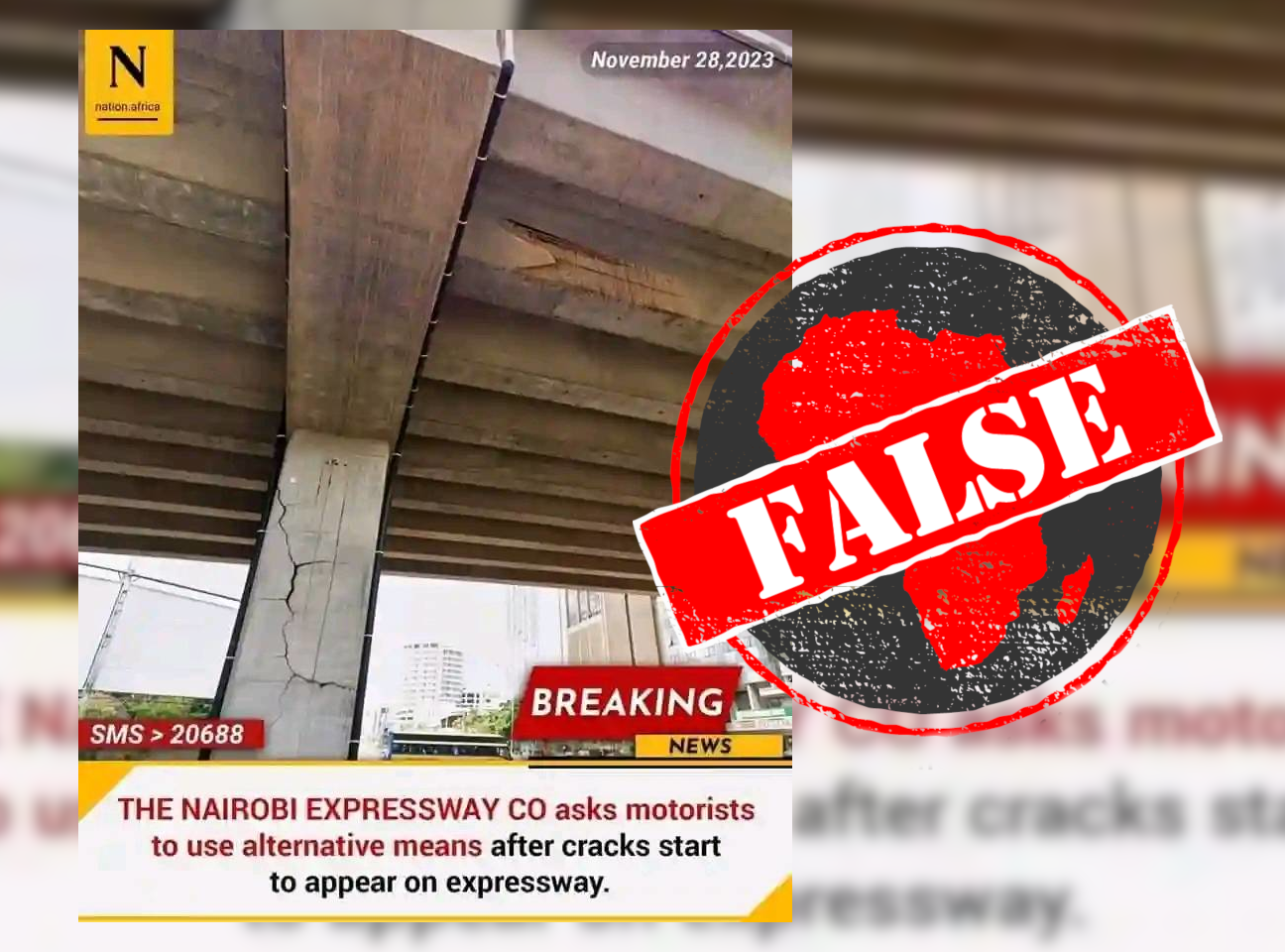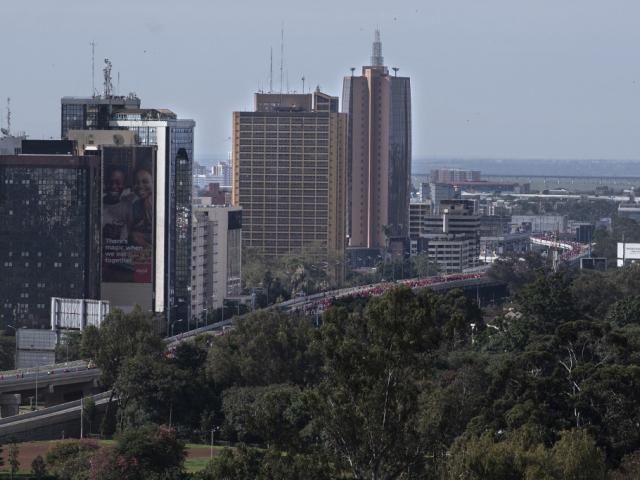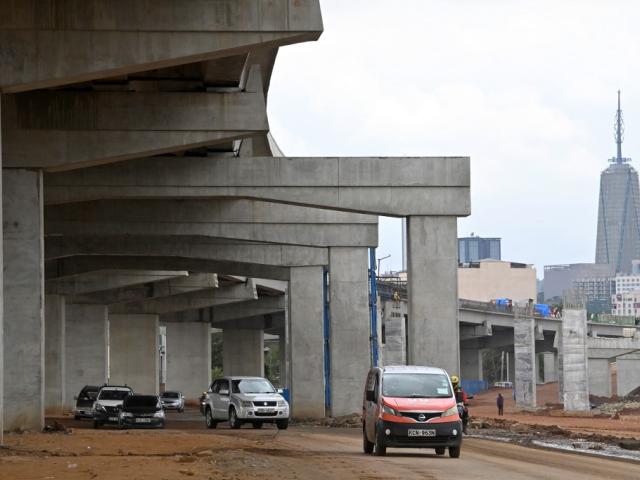IN SHORT: Fabricated graphics supposedly from credible media houses have become increasingly popular on social media platforms in Kenya. One example is a digital card with the Nation Africa logo, warning motorists not to use the Nairobi expressway.
“The Nairobi Expressway co asks motorists to use alternative means after cracks start to appear on expressway,” reads the text on a graphic circulating on social media in Kenya.
The image on the graphic shows the undercarriage of the Nairobi expressway, with a crack in a supporting pillar. If this were to be the case, road users would have to find alternative routes, adding to the Kenyan capital city's already congested traffic.
The Nairobi expressway is a relatively new motorway. It begins in the Mlolongo area of Machakos county, east of Nairobi, passes next to the Jomo Kenyatta International Airport, cuts through the centre of the capital and ends in the Westlands suburb of Nairobi county.
In September 2023 a group of activists took to court, alleging grand theft by infrastructure projects across the country. In addition, the road was built by a Chinese company, and a photo showing it was damaged soon after construction would play into a recurrent narrative of low-quality Chinese construction in Kenya.
The graphic features the Nation Africa logo and is dated 28 November 2023. The digital card has also been shared here, here, here, here, here, here, here, here, here, here and here.
But did the graphic really come from the widely read Nation Africa news site? We checked.

Digital card not from Nation Africa
On 29 November Nation Africa posted the circulating graphic on its official social media pages with the word “fake” printed across it in red.
“FAKE NEWS ALERT! Please be advised that this card doing rounds on social media is fake. #FakeNewsAlert,” reads their post on X.
The digital card is fake and should be ignored.
Republish our content for free
For publishers: what to do if your post is rated false
A fact-checker has rated your Facebook or Instagram post as “false”, “altered”, “partly false” or “missing context”. This could have serious consequences. What do you do?
Click on our guide for the steps you should follow.
Publishers guideAfrica Check teams up with Facebook
Africa Check is a partner in Meta's third-party fact-checking programme to help stop the spread of false information on social media.
The content we rate as “false” will be downgraded on Facebook and Instagram. This means fewer people will see it.
You can also help identify false information on Facebook. This guide explains how.




Add new comment